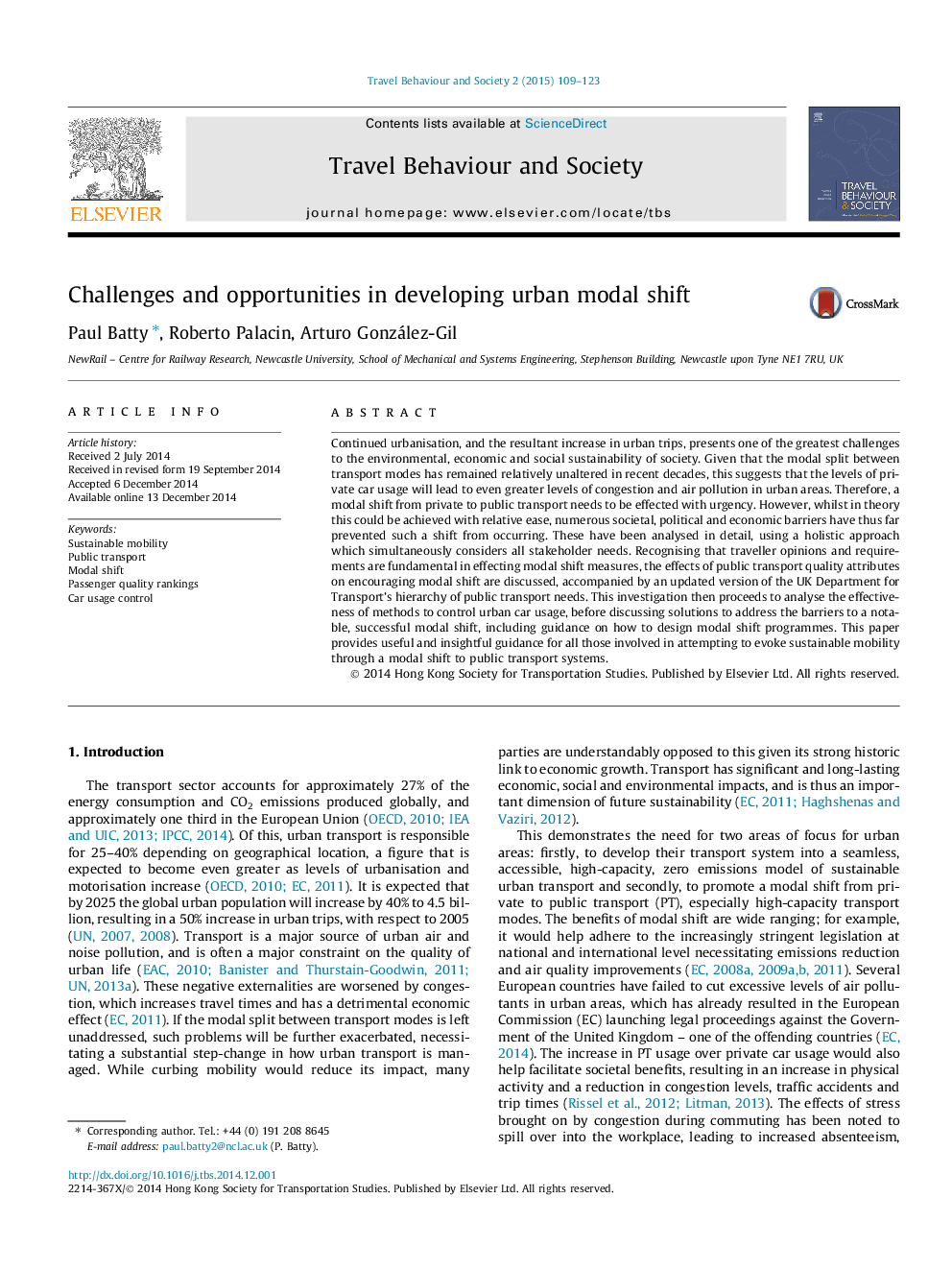| Article ID | Journal | Published Year | Pages | File Type |
|---|---|---|---|---|
| 141273 | Travel Behaviour and Society | 2015 | 15 Pages |
Continued urbanisation, and the resultant increase in urban trips, presents one of the greatest challenges to the environmental, economic and social sustainability of society. Given that the modal split between transport modes has remained relatively unaltered in recent decades, this suggests that the levels of private car usage will lead to even greater levels of congestion and air pollution in urban areas. Therefore, a modal shift from private to public transport needs to be effected with urgency. However, whilst in theory this could be achieved with relative ease, numerous societal, political and economic barriers have thus far prevented such a shift from occurring. These have been analysed in detail, using a holistic approach which simultaneously considers all stakeholder needs. Recognising that traveller opinions and requirements are fundamental in effecting modal shift measures, the effects of public transport quality attributes on encouraging modal shift are discussed, accompanied by an updated version of the UK Department for Transport’s hierarchy of public transport needs. This investigation then proceeds to analyse the effectiveness of methods to control urban car usage, before discussing solutions to address the barriers to a notable, successful modal shift, including guidance on how to design modal shift programmes. This paper provides useful and insightful guidance for all those involved in attempting to evoke sustainable mobility through a modal shift to public transport systems.
